The breakthroughs turning cancer into a chronic illness
Doctors say we are getting close to curing some cancers that kill millions of Australians. SEE THE LIST, LISTEN TO THE EXPERTS.
National
Don't miss out on the headlines from National. Followed categories will be added to My News.
It’s the medical diagnosis that strikes instant fear – cancer.
But astounding medical breakthroughs mean for many the disease is on the verge of becoming a chronic illness.
More than 150,000 Australians will be diagnosed with cancer this year and it will take the lives of 50,000 people.
The good news is outcomes in Australia are among the best in the world and survival rates are improving for most cancer types.
Since the 1980s the number of cancer deaths has dropped 24 per cent.
Breast and prostate cancers have survival rates of more than 90 per cent and some doctors believe common cancers are on the verge of becoming chronic illnesses rather than a death sentence.
“We don’t like to use the word curing cancer but we’re talking durable, long term control of cancer. People are surviving so well, that they’re dying of other things.” Melanoma Institute of Australia’s Professor Georgina Long said.
The National Breast Cancer Foundation (NBCF) is aiming to eliminate deaths from the cancer by 2030 and the Prostate Cancer Foundation wants to eliminate deaths from this cancer by 2040.
“Why wouldn’t we try to achieve zero deaths from breast cancer when in the past 18 months or 20 months we’ve seen a global effort to eliminate a pandemic and that was really achievable because of the investment and the concerted effort of clinician scientists and epidemiologists,” said NBCF research director Sam Oakes.
A combination of prevention, screening, vaccines and new treatments are behind the improvements.
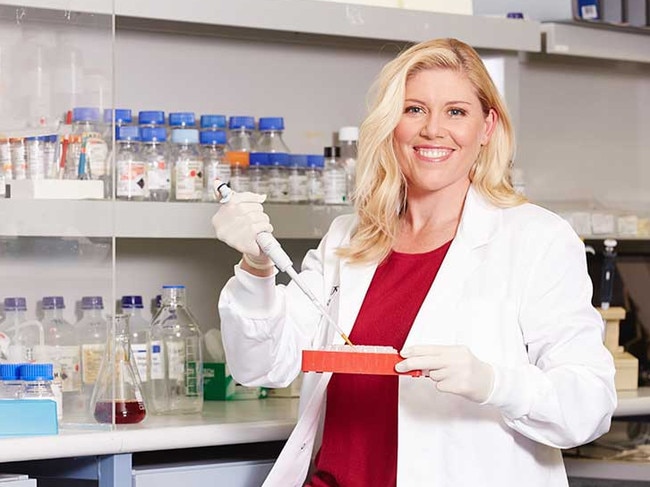
BREAST CANCER
New Treatments:
* A drug, called Lynparza, which costs more than $140,000, has been shown to reduce by 40 per cent the chance of breast cancer returning in women with the BRCA1 or BRCA2 genes.
* Statins including simvastatin, atorvastatin, lovastatin, fluvastatin and pitavastatin prescribed to help lower cholesterol levels have been shown to improve breast cancer survival by 58 per cent in women with triple-negative breast cancer.
* Immunotherapy drug Keytruda was last year approved in the US for patients with high-risk, early-stage triple-negative breast cancer, in combination with chemotherapy.
* Two drugs, called Verzenio and Faslodex help stop cancer cells from dividing and growing when used together.
Listen to National Breast Cancer Foundation research director Sam Oakes below:
Research:
* Blocking tumour growth
The Garvan Institute’s Dr Sharissa Latham has identified a new compound that blocks a protein from promoting the growth of tumours in breast tissue.
*Stopping the cancer spreading
The Garvan Institute’s Professor Paul Timpson has identified a molecule that helps breast reduce cancer spread by 73 per cent. Breast cancer survival rates drop drastically from 99 per cent to 27 per cent if a tumour metastasises.
* Which treatments work best in which women
A breakthrough new method of classifying breast cancers developed by The Garvan Institute could predict which treatments will work in individual women and which of them will respond to immunotherapy.
* Anti-nausea drug helps cancer treatments work better
The University of Queensland’s Associate Professor Fiona Simpson found cancer treatments were better able to interact with the immune system when used with an infusion of the cheap anti-nausea medication Stemetil. Clinical trials for head and neck cancer are about to commence.
*New treatments for triple negative breast cancer
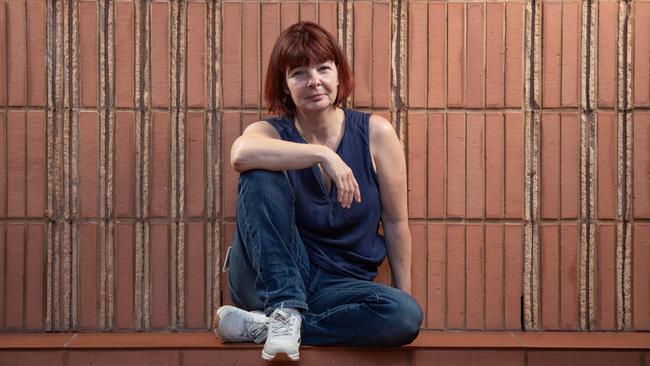
Listen to University of Queensland’s Associate Professor Fiona Simpson below:
Associate Professor Teresa Hickey from the University of Adelaide is investigating two drugs which could extend the life of people with triple negative breast cancer.
*Anti-histamine drugs as a way to shrink tumours
Common anti-allergy medications given at the same time as cancer immunotherapy have been associated with greater tumour shrinkage University of Texas researchers have found.
Prevention:
* Blood test for breast cancer:
A trail blazing blood test that could warn women in their 30s they are at high risk of developing breast cancer is under development in Australia. The test is likely to cost less than $100 and checks for biomarkers of DNA damage.
PROSTATE CANCER
New treatments:
* Theranostics
Theranostics, which combines diagnostic imaging with a new therapy, is set to revolutionise treatment of the most common cancer in men. It can be coupled with a new treatment TLX59 under development by Australian company Telix that targets a protein on the prostate cancer cell wall that kills the cancer. A Phase 3 trial is underway.
* Lymparza
Last year the TGA approved a precision medicine Lynparza for an aggressive and advanced type of prostate cancer that has faulty DNA damage repair genes. Could benefit up to a third of men but is not yet subsidised.
* Nubeqa
Nubeqa, a medication that works to inhibit male hormones which promote cancer growth, was approved for a government subsidy in July.
* Radioactive molecule that kills prostate cancer.
Listen to Prostate Cancer Foundation of Australia CEO Jeff Dunn below:
A molecule that can kill cancer combined with a protein that can guide it toward tumours was added to standard of care treatments in prostate cancer patients last year. It improves overall survival from 11 months to 15 months.
Prevention:
*New blood test
A new blood test has been found to perform as well as traditional prostate-specific antigen (PSA) screening for detecting prostate cancer. It has reduced the number of MRIs conducted by 36 per cent and biopsies by 8 per cent.
* Artificial Intelligence for early detection
A new tool analyses existing patients’ PSA tests, MRIs and clinical parameters searching for complex trends that humans may not be able to see. Results are compared to a database of more than 250,000 prostate cancer cases. Men are being diagnosed five years earlier using the technology.
BOWEL CANCER
New treatments
* Targeting genetic mutations
Later this year patients with a BRAF genetic mutation that means their cancer is more aggressive are expected to benefit from a new treatment Braftovi that is expected to be subsidised. It will benefit 1500 bowel cancer patients.
* Immunotherapy
Immunotherapy drug Keytruda uses the body’s own immune system to detect and fight cancer cells. It only works for a few hundred patients.
* Blood tests
A blood test to detect shards of cancer DNA in a person’s bloodstream to see if their cancer has returned is being developed by the Walter and Eliza Hall Institute.
A separate blood test by the CSIRO in collaboration with Flinders University and Australian-founded biotechnology company Clinical Genomics detects circulating tumour DNA and can detect when bowel cancer returns.
*Vitamin D
Listen to Bowel Cancer Australia executive officer Julien Wiggins below:
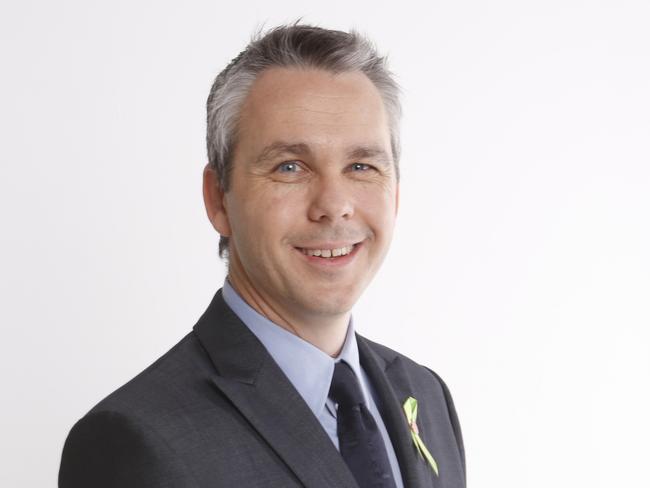
The SOLARIS trial is testing whether giving vitamin D with chemotherapy and another bowel cancer treatment helps shrink or stabilise bowel cancer in patients with metastatic disease.
* Psychiatric drug
A study has found psychiatric drug lithium can boost stem cells in the gut making them more resistant to cancer cells. A clinical trial is set to take place in the Netherlands.
* Vaccine
US researchers are trialling a vaccine to treat the cancer that may help people in the early stages.
Prevention:
* Lower the screening age
Bowel cancer can be successfully treated if caught early but only four in ten people who are eligible take part in the screening program. The cancer is on the rise in young people. Bowel Cancer Australia wants the age at which Australian are screened reduced from 50 to 45.
* Blood tests
The “yuck” factor gets in the way of Australians collecting stool samples to screen for bowel cancer so a blood test could dramatically lift the screening rate. An Australian developed preventative test called ColoStat is in clinical trials.
* Gut bacteria
Researchers are trying to identify specific bacteria that could help screen patients for bowel cancer.
* Antibiotics
UK researchers are investigating whether antibiotic use increases the risk of bowel cancer.
Early evidence suggests the use if the medicines may increase the risk of colon cancer by 49 per cent.
Listen to exercise physiologist Professor Rob Newtown below:
Katherine Longmire got a shock diagnosis of bowel cancer at age 29 after being repeatedly told she had constipation and needed to take a laxative.
The Director of Corporate Services for a not-for-profit said her doctors laxative prescription made no sense because she was a vegetarian on a high fibre diet.
When she began passing blood her doctor dismissed the bowel cancer symptom as Haemorrhoids.
After changing GP’s she was referred to a specialist for a colonoscopy and her specialist broke the devastating news: “this is serious, you have cancer”.
The delayed diagnosis meant the cancer had spread to her lungs and she needed radiation therapy to shrink the tumour before surgery because it was too large.
Further surgeries removed metastases in her lungs and a later surgery removed her rectum and she had a temporary stoma.
“Chemo has been the most challenging aspect for me through all of this. My peripheral neuropathy has been quite debilitating, I’ve already had my chemo dose lowered once as I couldn’t tolerate it. My mental health has really suffered as well. Cancer can take your mind to dark places and most people around you can’t comprehend the full scale of what you’re experiencing,” she said.
“I would say to other young people it’s really important that you trust your gut,” she said.
“If something’s not adding up, you can go and ask them to go get a second opinion,” she said.
Ms Longmire lost her mother to a brain tumour eight years ago.
“I did think that watching her deteriorate over the course of about nine months was the worst thing that would ever happen to me; I still think it is. There has been no genetic cause identified for either of our cancers, so looks like a case of really, bad luck,” she said.
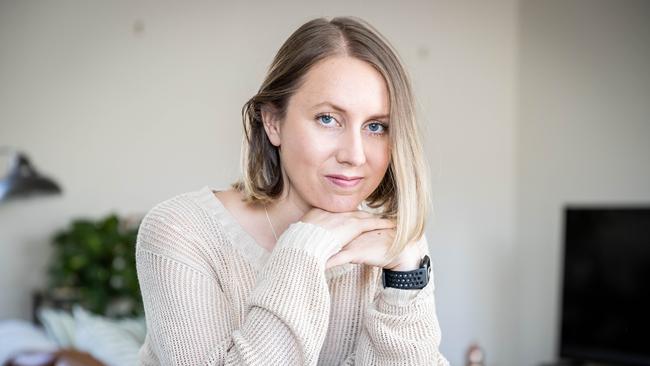
MELANOMA
New treatments:
* Immunotherapy
Half the patients with advanced or metastatic melanoma given a combination of two immunotherapies — Opdivo and Yervoy — are surviving for at least 6.5 years after diagnosis. Doctors hope it could actually be a cure.
A new immunotherapy called Relatlimab has been found to enhance the tumour fighting response. After twelve months of treatment almost half the patients on the combination therapy had no disease progression, whereas nearly two-thirds of patients on the single therapy had progressed.
* Earlier use of immunotherapies
Stage two and three patients are being treated with immunotherapies. Research has shown giving patients immunotherapy six weeks before their surgery is also a credible strategy.
* Personalised immunotherapy
Melanoma Institute researchers are testing patients’ tumours to see if they’re going to respond to standard therapy. If not, they determine the best approach for that individual patient, including experimental treatments.
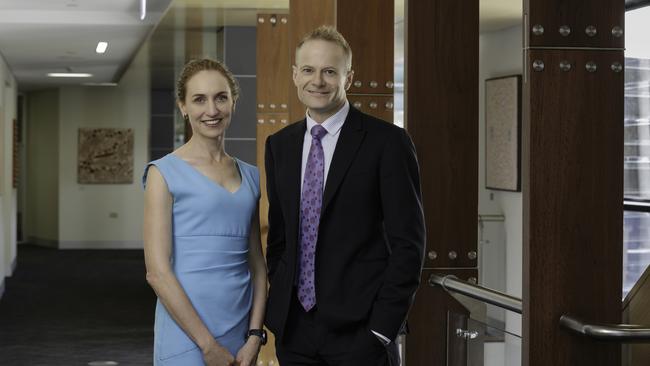
* Personalised mRNA vaccine
Researchers at the Melanoma Institute of Australia are working with Moderna, the company that produced the most effective Covid vaccine, on a personalised mRNA cancer vaccine for melanoma.
* Targeting certain genes
Therapies that target a gene that encodes a protein called BRAF are helping 40 per cent of melanoma patents but this does not work as well as immunotherapy.
Prevention:
* New diagnostic test
A new Melanoma Institute study is using genome data to develop a diagnostic test that improves the accuracy of diagnosis. It is likely to be used in practice by end of 2022.
* Artificial intelligence
Research is underway to use AI to examine images of skin lesions to pick up melanoma earlier, including whole body three dimensional image analysers.
BLOOD CANCER
Madilyn Chapman was diagnosed with acute lymphoblastic leukaemia at age four and spent months in hospital undergoing intense treatment.
Three years on, her family know how lucky they are to have her back home, but “never let their guard down and are never fully at ease”.
“Madilyn is living life normally but just has to be careful,” mum Alison Chapman said.
While Madilyn did not receive it, the treatment of blood cancers like hers are being transformed by new age Chimeric Antigen Receptor T (CAR T) cell therapies.
The treatment extracts a patient’s white blood cells, programs them to target the cancer then reinfuses them to turn the patient’s own immune system against the cancer.
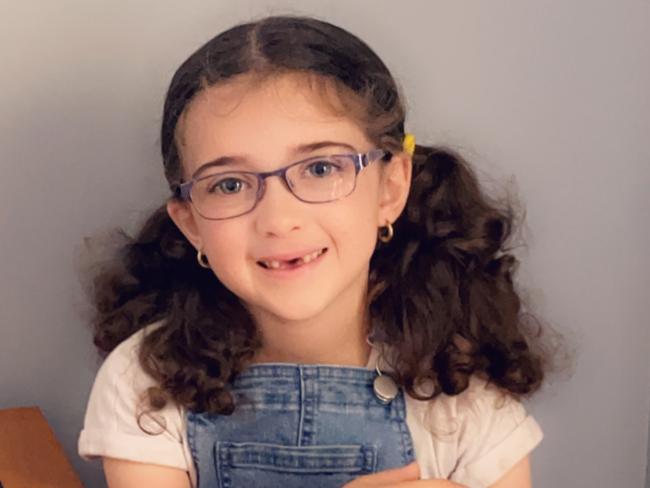
It has produced a 90 per cent remission rate in patients with B cell acute lymphoblastic leukaemia (B-ALL).
Between 35 and 40 per cent of patients with diffuse large B-cell lymphoma who have failed on other treatments have a complete remission
Two such treatments – Kymriah and Yescarta – have been approved for use in Australia, costing $500,000 per patient.
It’s a one-off treatment that doctors describe as being “alive” because it persists in the body and continues to act as an anti-cancer treatment.
“I just wish we could fast forward now so that kids going through cancer now can be helped immediately now,” Mrs Chapman said.
“I’ve seen it with Madilyn and it’s not fun.
“No child, parent or family should have to go through this so the idea of better medicine is amazing.”
LUNG CANCER
New treatments
* Testing
Scientists have identified 23 different biomarkers for lung cancer and genomic testing can show what that type of tumour a patient has and what its biomarker is so treatment can be tailored. The hitch is the genomic testing, which can cost many thousands of dollars, is not yet subsidised by Medicare.
* Imfinzi
In 2020 a breakthrough new medicine Imfinzi was subsidised for the treatment of non small cell lung cancer for use in patients who have not progressed after chemotherapy and radiation.
* Tecentriq
Tecentriq has been approved use for use in small cell lung cancer, in combination with a platinum-based chemotherapy and the drug etoposide. More than 1000 people will benefit from it.
And patients who received Tecentriq after surgery in early-stage non-small cell lung cancer rather than chemotherapy and/or radiation had a 34 per cent reduction in the risk of their cancer returning.
Listen to Lung Foundation Australia CEO Mark Brooke below:
* Keytruda
High-cost new combination therapy combining the immunotherapy Keytruda with chemotherapy has been shown to double five-year survival rates in non-small cell lung cancer patients from just 5 per cent to almost 25 per cent.
*Lumykras
The medicine targets a previously undruggable molecule in one in eight patients with non-small cell lung can shrink tumours by 37.1 per cent and increase survival by 12 and a half months.
* Combining immunotherapies
Opdivo and Yervoy used together are improving long-term survival for patients with non-small cell lung cancer.
Prevention:
* Blood test
University Queensland researcher Professor Dr Arutha Kulasinghe is testing a range of different types of breath, blood and biopsy to improve diagnosis of lung cancer.
* Screening
A national lung cancer screening program that would see people at high risk because of workplace exposure or smoking and aged over 55 receive a CT scan every two years is under development.
“If we can detect it early. Then it’s estimated that 12,000 lives will be saved over the next 10 years,” Lung Foundation Australia CEO Mark Brooke said.
- additional reporting by Adella Beaini





